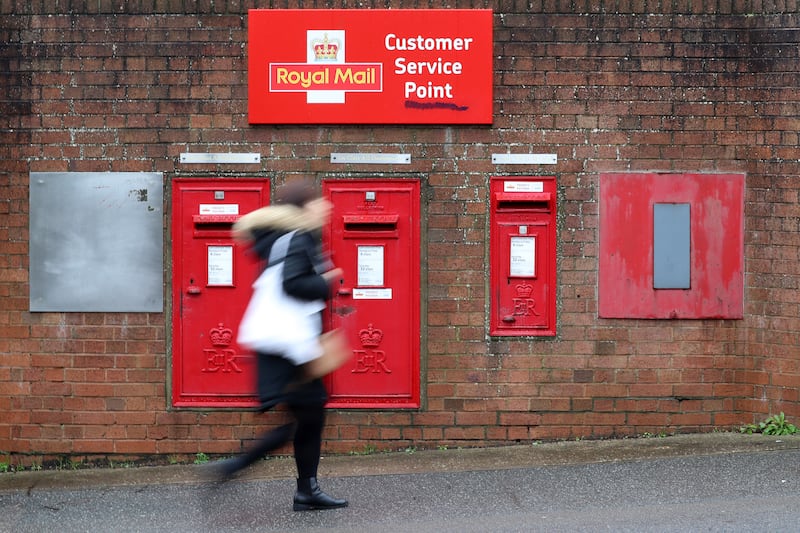THE Royal Mail has recently delivered a little love letter to its 161,000-odd workforce, announcing far-reaching changes to the company’s pension scheme.
These changes will create a whole new type of pension previously unknown in the UK: the ‘collective defined contribution pension’, which, as I’m sure you’ll agree, is just crying out to be abbreviated: CDC.
It has immediately attracted warnings that the workings of the scheme are so devilishly complex that the main challenge will be to adequately make it understood to members. This is where we financial advisers will come in.
“Why does this affect me? I’m not a Royal Mail worker”. Good question.
Well, in time, this may affect many more than just Royal Mail employees, as the government are looking at it as a pilot scheme that could be rolled out into other organisations. There are CDC pensions already operational in Denmark and the Netherlands.
The CDC scheme will supercede the Royal Mail’s current defined benefit pension, also known as their ‘final salary’ pension. As you will recall, a final salary pension gives you a retirement income based on your number of years of service and your final salary at retirement. It’s a great pension for the worker, because you come away with a guaranteed income - and as we know, guarantees are hard to come by, these days.
Guarantees like this can be costly for the employer, though, because if the investments funding the scheme have a few bad years, resulting in a major shortfall, the guarantees still have to be met. This can mean the company dipping deep into its own pocket, to meet commitments.
There was a bad spate of this about 10 years ago, with some of the most famous household names, from manufacturing to retail to banking, tripping up on their underperforming pensions. The Royal Mail’s final salary scheme will close to new members at the end of the month, as the company becomes the latest in a long line to do so: Pirelli, Dairy Crest, Costain, Tesco, Morrisons, Barclays, IBM, and Lloyds.
There is no doubt, however that the new CDC pension is not as reliable a deal for all the Postman Pat’s and Patricia’s out there, compared to the final salary guarantee.
Why? It’s simple: the CDC pension does not come with a guarantee. Instead there is an aspirational ‘target amount’ you will get, depending on the performance of the long-term mixture of investments underlying the pension. A cynic might say the company has off-loaded the risks of providing a guarantee, and now it is the employee who carries the investment risk. Luckily, we have no cynics in this office.
Another difference is that in the CDC pension, the cash is held in a large collective pool, there is no individual pension fund for each worker.
Now, the work and pensions secretary, Amber Rudd, has praised the new scheme and assures us it will result in better outcomes for employees, but is equally enthusiastic about how it will cut costs for the Royal Mail, which will, as I say, now be absolved of any further guarantee obligations.
Industry experts are not so joyously enthusiastic, pointing out that while you may know what your ‘target outcome’ should be from the CDC, the reality could be very different – making your retirement planning much more difficult.
Worst of all, the pension that future Royal Mail workers will get from the CDC is not a fixed payment month upon month – there is a chance that the monthly amount you get could fall over time.
There are two factors to consider here. If you work for the Royal Mail, you have no choice, you will now be entered into the CDC scheme.
For others who currently have a final salary pension in the workplace, some companies are now introducing defined contribution schemes, where they define what you pay in, but you have no guarantee what you will get out. Like the CDC scheme, the risk rests with the employee.
Moreover, some employers and even advisers are encouraging workers to transfer out of relatively lucrative final salary pensions and into more risky defined contribution schemes, a move which for the vast majority may not be advisable at all.
Again, understanding and comparing the benefits of various types of pension scheme is a complex business. If you have a choice of which scheme you’re going to bank on, you’ll be a lot safer with good quality advice from a pensions specialist.
That much we can guarantee!
:: Michael Kennedy and Shaun Doherty are independent financial advisers and pensions specialists and can be contacted on 028 71886005. Further information is on the Facebook page 'Kennedy Independent Financial Advice Ltd' or the website www.mkennedyfinancial.com








